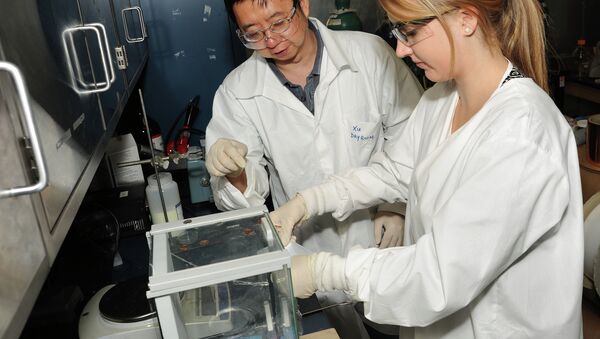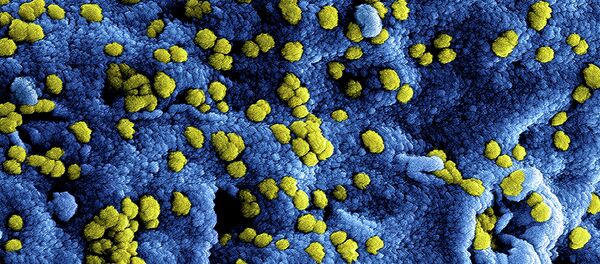Undergoing lab experiments "for the sake of science" bring to the table ethical questions such as whether scientists should carry on its work that could enhance the virulence of some pathogen on pain of being blamed for "uncaging the animal."
The study was launched long before the US government banned funding new research on deadly or transmissible viruses of SARS and MERS as well as influenza-causing tests so it was allowed to be completed.
Scientists developed a protein-made hybrid with the same structure as SARS to study the virus in the lab. Pundits slammed the study claiming that the cost of the tests is incomparable with the threat of the virus if released in the wild.
"If the virus escaped, nobody could predict the trajectory,"virologist Simon Wain-Hobson of the Paris-based Pasteur Institute told Nature.
The severe acute respiratory syndrome, which began in southern China and lasted about seven months killing just over 800 people in 29 countries, reduced the global GDP by $33 billion and prompted worldwide panic. A recent study on SARS confirmed findings from 2005 marking bats as the natural hosts of coronaviruses similar to SARS.
"The strain grew equally well to SARS in human cells," Dr. Ralph Baric, a professor of epidemiology at the University of North Carolina, Chapel Hill, and the lead author of the study, told Motherboard. "It resisted all vaccines and immunotherapy, too."
However human beings still have chance to survive. Professor Baric said that thanks to the study, scientists could be ready for the next virus outbreak by preparing vaccines in advance.
"This is the main problem with emerging viruses," he said. "In animals, there is a beehive of emerging viruses. You get strains that are more and more diverse-but they're still closely related."
So the new SHC014-CoV virus is similar to SARS by a record breaking 88 percent. And the probability the strand would cause an epidemic is very high so it would just be a matter of time.
"We were actually fairly lucky with SARS; humanity was, I mean," said Baric. "It was a credit to public health actions, like quarantines-that's what really stopped [the] epidemic."
According to the professor, people have to act within 30 hours after it emerged otherwise, the SARS outbreak will have different consequences.
"People don't realize how really lucky we are," Baric said.
Baric claims that the risk of "gain-of-function" research is worth it. Scientists could develop a treatment that would target those viruses and the viruses similar to them because of the lab tests with them in hopes of preventing the next epidemic. In other words, the new findings may help develop vaccines for many more strains of infectious diseases even though they have not been yet found.
"Now, we can capture the entire swarm," Baric stated. "That's the beauty of the study and most important take-home."
As for now, scientists don't fully understand whether the new virus, like SARS, could be transferable to humans. So there is no other way for the whole scientific community but to carry on developing new defenses against the next epidemic-and simple wait for its arrival.





